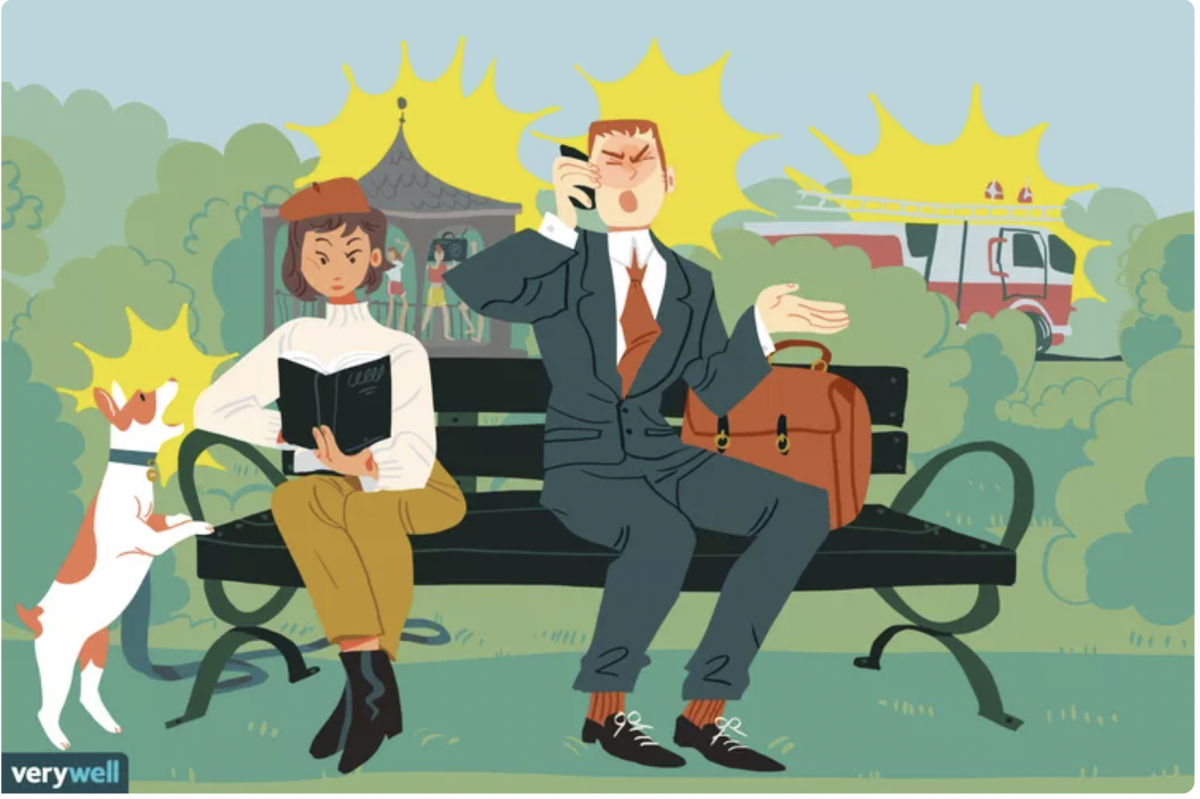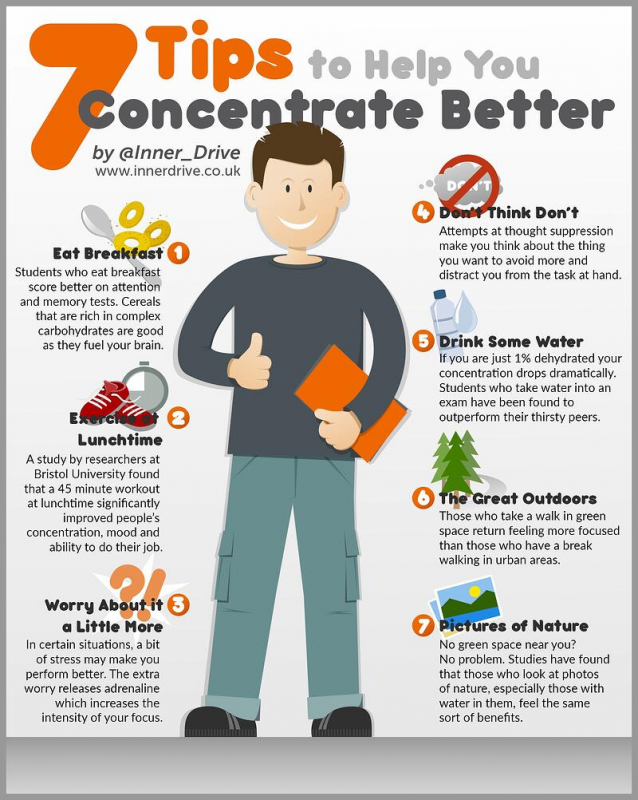Lesson Information
Positive Psychology Learning Outcomes
Students will...
- identify both the positive and negative effects of selective attention.
- practice directing their focus on more mindful habits.
Language Learning Outcomes
Students will...
- listen for specific information.
- be able to repeat spoken information.
Materials Needed
Overview
Selective attention is the ability to select and process specific information while ignoring irrelevant information. For example, in listening tasks, we listen to specific information and answer the questions accordingly. Selective attention (not focusing on the irrelevant information mentioned in the audio) can help us complete the listening tasks effectively. Also, when we practice selective attention, we are better able to focus our attention on one thing and avoid feeling overwhelmed by the many different events that happen in our lives. Selective attention can increase our well-being since it can potentially help us focus on the positive while leaving the negative aside. Even when we face challenges and obstacles, we can choose to focus on the positive. In this lesson, we will learn about how selective attention, meaning what you decide to focus on, can help your well-being and language learning.
Defintion retrieved from: https://edtechbooks.org/-oTx
Activate Background Knowledge
Watch the following video until at least 3:00. If the students want to watch the remainder of the video to see other people’s reactions, that is optional. Before watching the video, ask students to follow the instructions given in the video.
Selective Attention Test
https://youtu.be/_bnnmWYI0lM
Ask students to share their responses to the following questions with the class.
- Were any of you surprised with the results?
- Think about why you might not have noticed the duck, extra hand, or color-switching while you were watching the video.
- What is a distraction? What distracted you while watching the video?
- Name some of the distractions you have in life (list them on the board).
- Why is it important to recognize the distractions we have in life?
Explain to students that distractions may prevent us from paying attention to something else. Just like the distractions (so focused on one task) we had while watching the video, we did not notice things that were happening around us.
Activity 1: Speaking
Check students’ understanding of the term “distraction.” Distraction is something that prevents us from giving our attention to something else. Explain to students that distractions are everywhere around us. Ask students to name some and list them on the board.
Ask students to discuss the following picture with a partner.
- What is the woman trying to do?
- What kinds of distractions is the woman receiving around her?

Retrieved from: https://edtechbooks.org/-Esu
Ask students to answer the following questions with a partner.
- Pretend that you were at home trying to do a homework assignment.
- What kinds of distractions may stop you from doing your homework?
- Ex. phone, eating, other people, TV, pets, kids, etc.
- How can distractions affect our life?
- Now think about the picture.
- How can focusing on something help us?
- Ex. Focusing on something can help us not be affected by other things. Sometimes we need to get things done in a short period of time. Focusing on the task can help us complete the task faster.
- Think about the woman in the picture. Why is it helpful if she can use selective attention, focusing on something specifically, to read her book?
- Ex. The woman was not distracted by her surrounding. She was able to focus on finishing her book.
- Now think about the video with the cups.
- How can selective attention, focusing on something specifically, also be unhelpful to us sometimes?
- Ex. If I am only paying attention to the game on my phone, I may not hear what somebody is saying to me, even if it’s important and from somebody I love and care about.
Distractions are everywhere. That’s why it is important for us to attend to the right, positive, and important things.
Activity 2: Listening
Selective attention is something we use in listening all the time; we look for specific information and ignore irrelevant information while listening.
- Ask students to take notes on the main ideas while listening to the following video the first time.
- Ask students to summarize the video to their partners. Each student speaks for one minute.
- Ask students to take notes on the details—names, numbers, dates, etc. while listening to the following video the second time. The notes should be on the other side of the paper.
- Ask students to compare the notes they took for both attempts and discuss if they notice any differences or changes in their attention or notes while listening.
- What was the difference between your attention while watching the video the first time and the second time?
- Answer the comprehension questions from the website to see if they got any notes that help them find the correct answers.
Activity 3: Speaking
Something that stops us from purposefully paying attention to something is called mindless habit. What are mindless habits? Give a few examples to help students understand what these are exactly.
- Driving without really thinking about where you are
- Scrolling on your phone with no real purpose
- Saying “I’m good” to anyone who asks
- Not thinking about what you are eating
- Put in headphones as soon as you get on the bus
These are things that you do without any purpose; mindless habits make you not live in the moment. Ask students to complete the following tasks:
- Think of at least one mindless habit you have and share it with a partner.
- Ex. During dinner, even though I am with my family, I sometimes still unlock my phone and scroll through the social media homepage. I don’t know why I do that, but I just do it without any purpose.
- Brainstorm as a partnership a habit you can replace or substitute the mindless habit with that will help you be more mindful, or in other words, pay more attention.
- Ex. Instead of looking at my phone while I eat, I am going to sit at the table and think about what my food tastes and smells like.
- Set a goal to do your best to replace this mindless habit with something better.
- You can discuss questions with them such as “how does this help our well-being?” (as a follow-up activity, students may be invited to share their experience with this exercise).
- Ex. I will start conversations with my family. We can talk about our day, the food we are eating, or our future plans.
Setting this kind of goal can help us reduce mindless actions that contribute to negative emotional states, such as seeing bad news on social media and eating mindlessly and regretting it. It can also give us more sense of direction (feeling like we are going somewhere/getting something done) and make us more aware of our actions and states. As we change these mindless habits, we can improve our focus and have better selective attention.
Activity 4: Listening and Speaking
What are other ways we can improve our focus to have better selective attention? There are many ways, and only a few can be practiced in class. We are going to practice selective attention by playing this activity called Domino Storytelling.
- Domino storytelling
- Ask students to form a line.
- Start at one end of the class and one student will say one word to begin a story. It may be helpful if the teacher starts the story to give students a prompt.
- The next student will repeat that word and add another word onto it and so on and so forth until you reach the end.
- The students near the end will have to do a lot more work to focus and remember what was said.
- Repeat the activity again but this time start on the opposite side of the room with the student who finished last in the first story.
Activity 5: Listening
Another activity to practice selective attention is meditation. We are going to listen to a guided meditation. This requires a lot of attention to our own bodies, which is very beneficial to our health and minds. There might be some phrases you don’t understand. Don’t worry about that! We will pause and briefly talk about that when these words come.
5 Minute Guided Meditation
https://youtu.be/d5RQUNTYgBE
Homework
Have students complete the following tasks:
- Write down your goal(s) of replacing a bad habit with a better one
- Make a short plan of how you will achieve your goal(s)
- Ex. Instead of scrolling through my phone during dinner, I will start conversations with my family. We can talk about our day, the food we are eating, or our future plans.
The teacher will follow up on this on Thursday, and they will be invited to share their experiences.
Follow-Up
Tuesday:
Play the game telephone. Tell one student a few short sentences and they must focus to remember what was said, then pass on the information to the next student. Have students convey messages relating to selective attention, the reduction of mindless habits, etc. A teacher might even model by saying something like “Instead of surfing on my phone, I sent uplifting notes to friends” or “I listened to a guided meditation yesterday and tried hard to tune out the noises around me.”
Wednesday:
Discussion question: What does the word concentration mean? Did anyone try to concentrate more this week? Did you cut out distractions? (*Highlight any comments about dealing with and avoiding distractions.)
Ask students to look at the infographic below and discuss anything they found interesting or surprising from the tips given. Also, have them think about one tip they would like to try this week. Or maybe talk about how doing some of these things makes them feel.


Retrieved from: https://edtechbooks.org/-Itsb
Thursday:
Follow up on the goals they set on Monday and ask them to share their experiences with a partner, their groups, or the class. Ask them to share how they felt when they replaced a mindless habit/action.